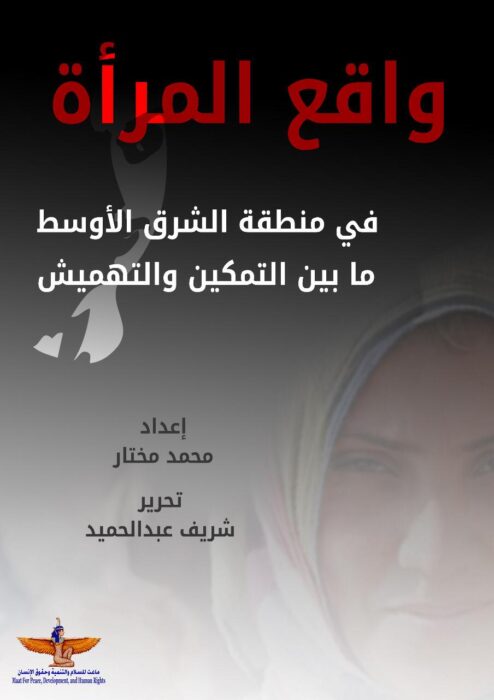Introduction
Every year, March 8 marks International Women's Day, which is an occasion to reflect on the progress made, to call for change, and to celebrate the work of ordinary women and their courage and fortitude in playing exceptional roles in the history of their countries and societies. Recent years have witnessed unprecedented progress by many countries in the world with regard to women's rights, but achieving gender equality is a goal that no country has achieved. As legal restrictions still prevent more than two and a half billion women from choosing jobs like men, as well as the number of female parliamentarians in the world before 2019 was no more than 25%. One in three women still suffers from gender-based violence.
This year, the world celebrates women as they stand on the front lines of the response to the Covid-19 pandemic, as health care workers, sponsors, innovators, community activists, and wonderful examples of effective national leaders in the efforts to address the pandemic. This health crisis has highlighted the unfair centralization of their contributions and the burdens they place on.
The United Nations has set a theme for this year's celebration, “Women in the leadership ranks to achieve a future of equality in the world of Covid-19.” This theme is intended to celebrate the tremendous efforts made by women and girls all over the world in order to shape a future of greater equality and better recovery. From the Covid-19 pandemic. This topic is also in line with the main theme of the 65th session of the Commission on the Status of Women, “Women in public life and equal participation in decision-making”, and the pioneering Generation Equality campaign, which calls for women's right to make decisions in all areas of life. And their right to equal pay, achieving equal participation in unpaid care and domestic work, putting an end to all forms of violence against women and girls, and facilitating health care services necessary for their needs.
And in the Middle East region, despite the wide-ranging steps taken by many countries to ensure the achievement of gender equality in the areas of social and economic rights in addition to reducing violence against women at all levels, from domestic and societal violence to state violence by targeting female opponents and defenders. Concerning human rights, however, women still suffer from poverty, discrimination, and the difficulty of obtaining their civil, political and economic rights. This coincides with the continuing spread of stereotypes and patriarchal views and the rise in the boldness of reactionary and fundamentalist ideas towards women in some countries. Women within societies in the Middle East region ranked second in the world with a rate of 37%, based on the distress calls made by women through hotlines of women's rights organizations across the region, and on the other hand, the rate of women's participation in the fields of work was 24.6% compared to 48% worldwide It is a very low percentage, and in a related context, the percentage of women using digital platforms In the Middle East region 28% compared to 44% worldwide, it is worth noting that there are 69 million women who do not use the Internet in the region, and this matter affects the education of women in the Middle East region, especially in light of the spread of the Corona pandemic and the world's reliance on e-learning based on the Internet .
As such, estimates indicate a low level of women's participation in the labor market, so that 2 out of 10 women in the Middle East work or look for work compared to 7 out of 10 men, and moreover women spend more time than men in unpaid work. By 4.7 times, which is the highest rate among all countries of the world, and in a related context, one of the field studies demonstrated the persistence of traditional social norms and stereotypes in curbing fixed steps to advance women's rights, as one of the field studies among women indicates that they prefer men in leadership positions over women. The majority of Arab citizens do not believe that there can be equality between the sexes in various fields and roles, as 88% from the Lebanese, 801 TP1T from Iraqis and 791 TP1T from Tunisians believe that the last word in family affairs should be the husband and not the wife, which indicates the continued spread of male domination within societies in Middle East region.
It is in this context that an institution provides , Maat for Peace, Development, and Human Rights This report aims to monitor and analyze the situation of women in the Middle East region, especially with regard to political, economic and social rights, in light of the persistence of discrimination and violence against women on an escalating basis despite the steps taken to advance their rights.
To obtain a copy of the report, please complete the following information











